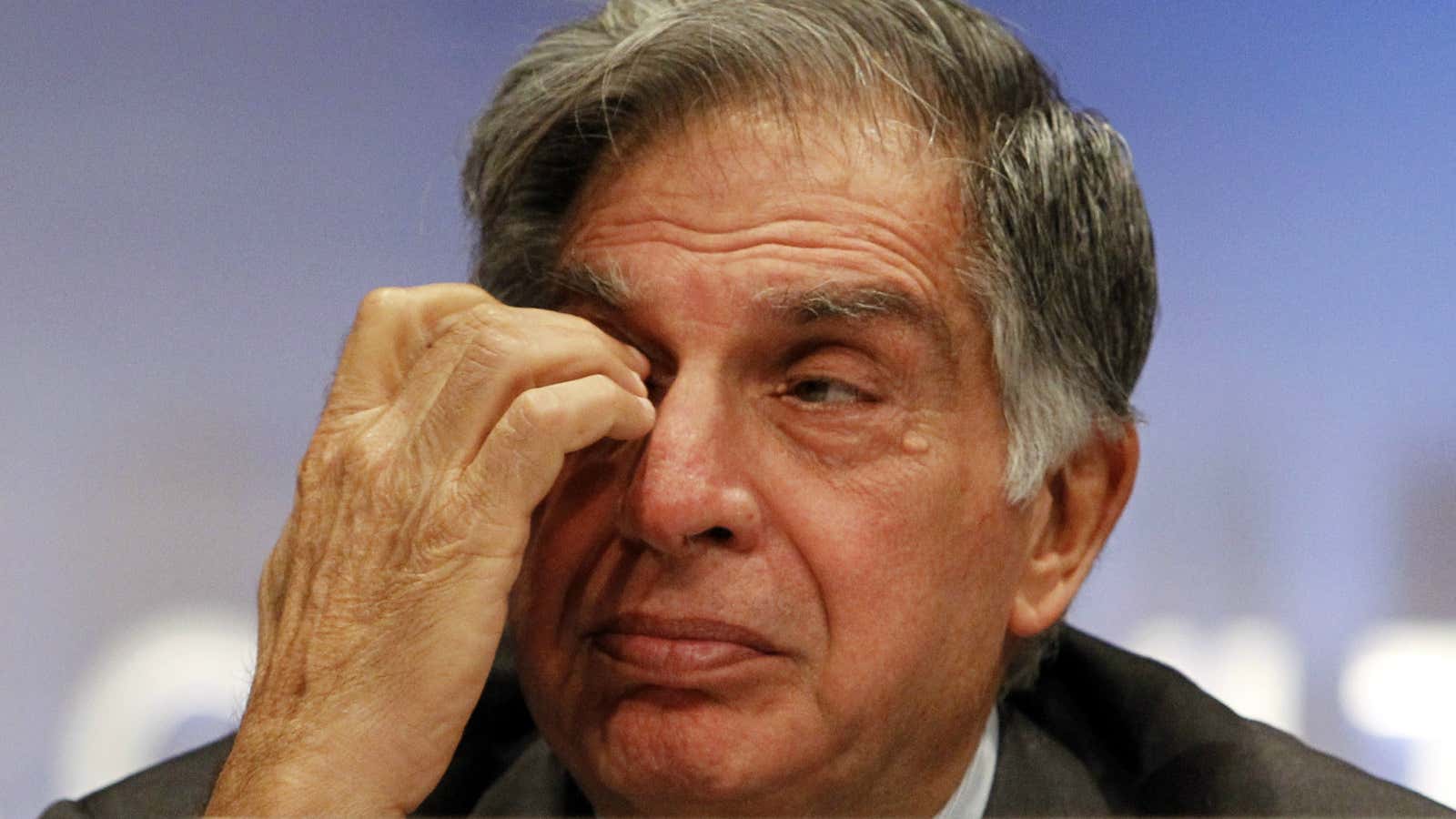The firecrackers just won’t stop going off at the Tata Group.
The last week has been harrowing for the 148-year-old conglomerate with a public mudslinging match underway between ousted chairman Cyrus Mistry and the group, once again led by Ratan Tata, who has returned as the interim chairman.
Even over the Diwali weekend, multiple allegations were made by both sides about decision-making powers, asset sale activities, and instances of weakening trust. Some senior executives have also reportedly quit.
With Tata’s return, there have been questions raised over his inability to let go of the group that he transformed during his over two-decade stint as the chairman. Mistry, on his part, has defended his actions, even as critics have labelled his leadership as inadequate.
The story so far
A boardroom battle started on Oct. 24 when the board of Tata Sons, the group’s holding company, ousted Mistry as its chairman. The apparent reasons for Mistry’s sacking were his inability to turn around the group’s fortunes and some of his decisions to sell badly-performing assets. The board of directors also lost its trust in the 48-year-old chairman.
Mistry’s removal was followed by the leak of an email he wrote to the Tata Sons board. In the six-page document, he explained the rationale behind his actions and alleged that the board had curtailed his decision-making power. Tata Sons responded by saying that the email leak was “unforgivable.”
Top executives resign
Since Mistry’s sacking, the Tata group has seen three high-level exits, according to multiple media reports.
These include the group’s human resources chief, NS Rajan, the group business development head, Madhu Kannan, and the group strategy executive, Nirmalya Kumar. These three were part of the executive council that Mistry had set up in 2013 to give him strategic and operational support.
“In the short term, obviously there’ll be some disruption at the group level,” Shriram Subramanian, managing director at InGovern, a shareholder advocacy group, told Reuters. “People leaving at senior levels shows there’s a lack of confidence between the two sides, and that needs to be reinstated at the earliest to contain any longer-term damage.”
Meanwhile, there are talks of an attempted mediation between Tata and Mistry being orchestrated by senior lawyer Darius Khambatta. According to the Business Standard newspaper, the Tata Group wants Mistry to quit from all group companies, without any acrimony. Khambatta has rejected these reports and said that he is “not mediating between them.”
Mistry’s rebuttal to Tata’s rebuttal
On Oct. 28, Cyrus Mistry’s office issued another statement to clarify about some allegations. One of the charged levelled against Mistry, according to various media reports, is that he did not inform the Tata Sons board about the Welspun acquisition by Tata Power.
On June 12, Tata Power announced that it will buy Welspun Renewables Energy, a Mumbai-based renewable energy firm. The deal, valued at between Rs6,000 crore and Rs10,000 crore, is the largest ever in the Indian renewables space.
In his statement, Mistry said:
It is surprising that Mr Tata has sought to justify Monday’s conduct by making vague public statements that are contrary to his knowledge and contrary to the records of the Tata Group.
…Tata sources said that the trustees of Tata Trusts were not kept informed about the transaction. The facts are as follows: In the early part of this year, Tata Power made a presentation to Tata Sons that a significant focus area would be the renewables sector. The Tata Sons Board appreciated it. On May 31, 2016, a note was circulated to the board of Tata Sons and to Ratan Tata (he was sent all board notes as chairman emeritus) providing information about the proposed Welspun transaction, and asking them if they needed any further information.
The statement said that the board had “unanimously approved” the deal. It added that the minutes of the board meeting state that Nitin Nohria and Vijay Singh, both board members, “after discussing the proposal with Mr. Tata and Mr. Soonawala, while reiterating their view that the proposal should have come to the trustees earlier, approved the transaction.”
No one quite knows which side will eventually claim victory, but this much is clear: The Tata Group’s reputation has been singed.
